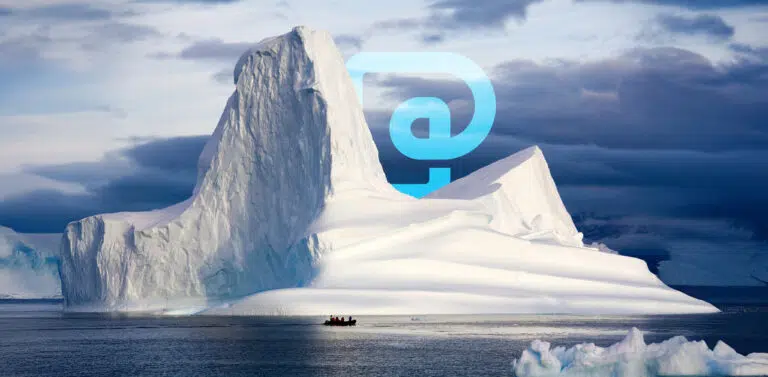Welcome to this guide on the best time to visit the Arctic. Based on our first-hand experience, it will help you decide which month to travel there. Inside it, you will find
- An Overview of the Arctic Seasons
- Arctic destinations and when to visit them
- Best months for seeing polar bears and wildlife
- Best time to see the northern lights and midnight sun
- Best months for cruising in the Arctic
Let’s get started!
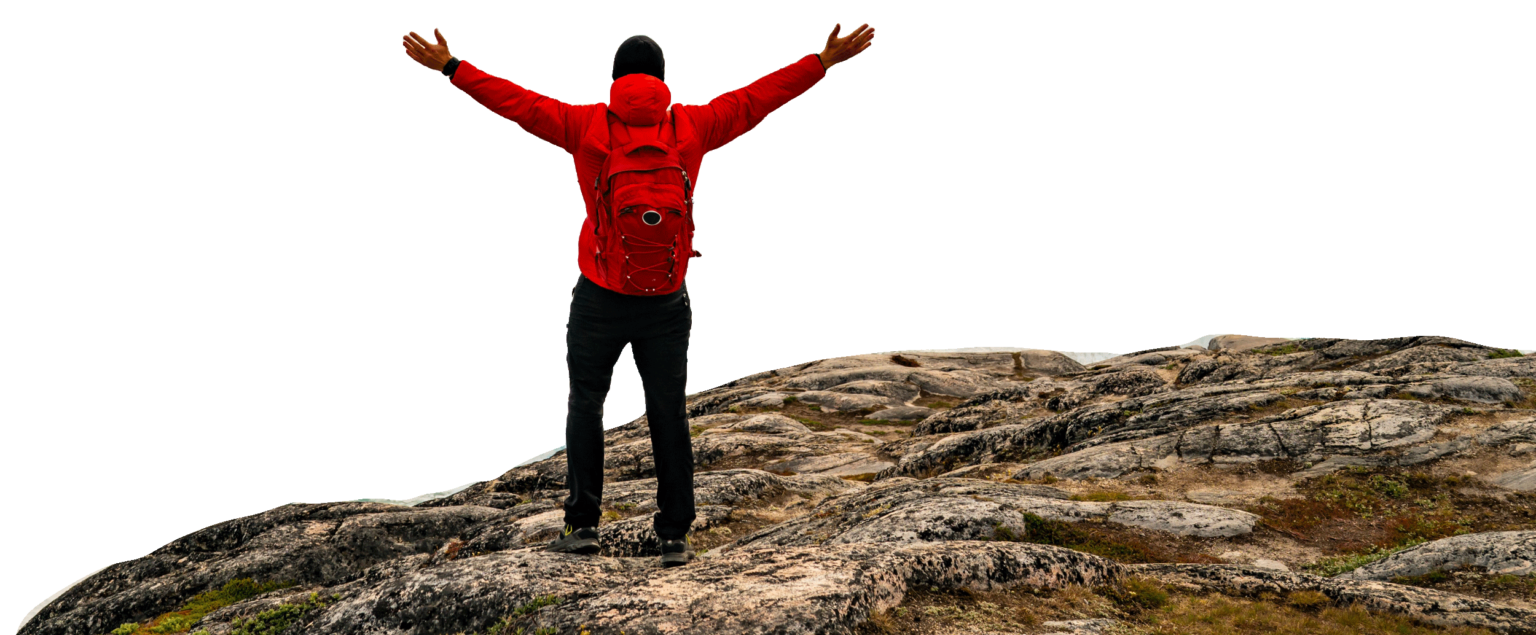
Table Of Contents
So when Is The Best Time To Visit The Arctic?
The best time to go to the Arctic is between May and September when wildlife is most active, there are 24 hours of sunlight, and the temperatures are mildest.
This is the main season for Arctic expedition cruises, which offer the best way to encounter wildlife like polar bears. If seeing the northern lights is your priority, consider visiting in autumn or winter, when the nights are much longer.
If you want to visit the Arctic, Polar Escapes offers the largest selection of expedition cruises and tours. We are travellers who have often been there, so if you have any questions, please ask us.
Arctic Seasons & Climate
The Arctic is a vast region that spans approximately 5.5 million square miles and covers the entire surface of the Earth from the Arctic Circle to the North Pole.
The climate across the Arctic varies drastically depending on the location and the season. Here is an overview of the Arctic’s four distinct seasons.
Arctic Spring
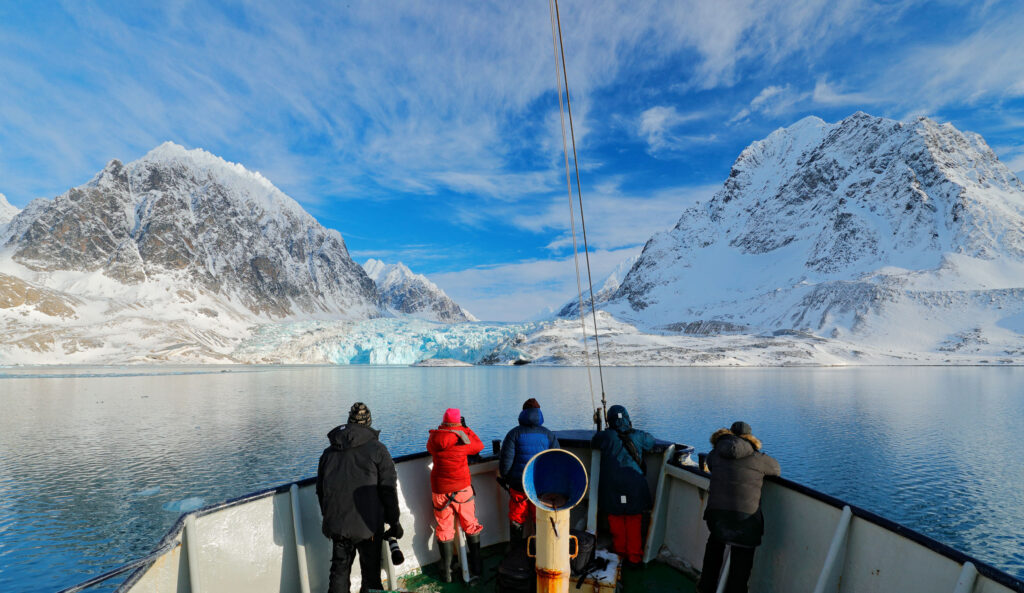
The sun returns to the Arctic between March and May after a long, dark winter. In spring, landscapes are frozen, making it the perfect time for ski trips, snowmobile tours, and dog sledding in Svalbard and Greenland.
Spring is the ideal month for an adventurous luxury icebreaker cruise from Iceland to explore the pack ice of East Greenland onboard Le Commandant Charcot.
By April, the midnight sun had returned to Svalbard high above the Arctic Circle as the first expedition ships made their way north. Sea ice begins to break up for the summer, allowing access to expedition ships. Polar bears begin to return from their dens on the land to the fjord ice in May, making for extraordinary wildlife watching.
Average temperatures in Longyearbyen, Svalbard, vary between -13°c in March and -3°c in May.
Arctic Summer
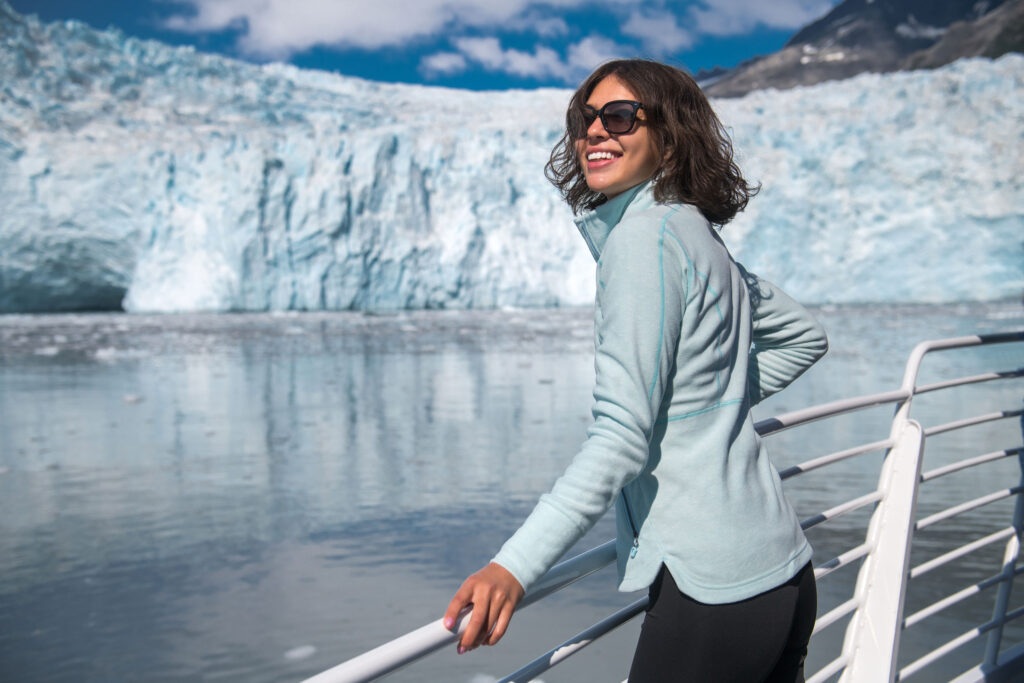
Between June and August is the peak for wildlife watching in the Arctic. Most expedition cruises take place during this time, making it the busiest time to visit. Polar bears are sighted throughout the Svalbard Archipelago and in East Greenland. Walruses can be seen resting on ice floes. Ringed seals, Arctic foxes, beluga whales and migratory birds can be seen in abundance.
The brief Arctic summer is the best time for activities such as sea kayaking, hiking, and exploring on a ship-based exploration. The Midnight sun brings 24 hours of sunlight to the High Arctic until mid-August.
The later summer months are the best for exploring East Greenland and the Northwest Passage, as the sea ice recedes, making navigation by ship possible.
Temperatures in Longyearbyen, Svalbard, are above freezing during the summer and vary between 3°c in June and 6°cin August.
Arctic Autumn
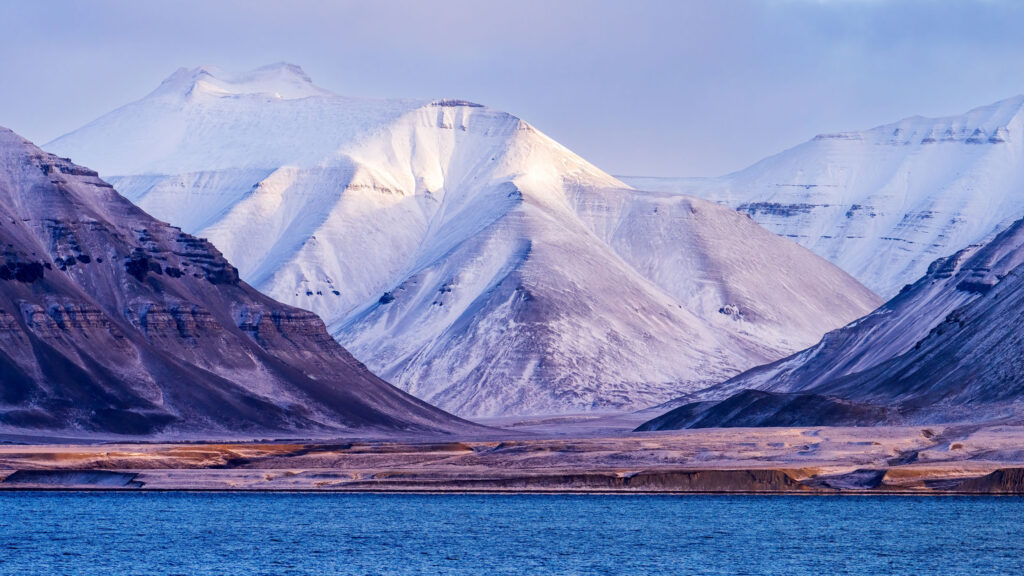
Between September and November, the sun fades from the sky, and long sunrises and sunsets greet visitors. The last expedition cruises take place in late September and Early October. Wildlife begins to migrate south, and the northern lights illuminate the skies above the Arctic.
October is one of the best times to see polar bears on land-based tours in Churchill, Canada. Every year, polar bears congregate near the town known as the world’s polar bear capital, waiting for Hudson Bay to freeze.
Temperatures in Longyearbyen, Svalbard, vary between 1°c in September and -8°c in November.
Arctic Winter
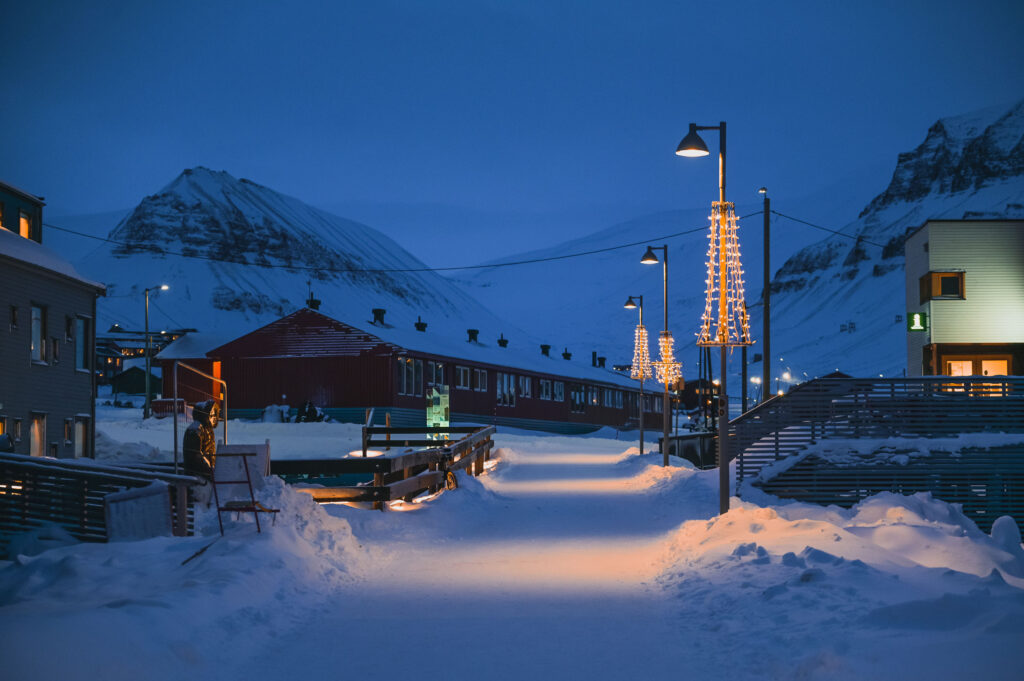
Visiting the Arctic during the winter months between December and February is possible. During this time, the polar night consumes Svalbard with 24 hours of darkness. It is one of the best times of the year to see the Aurora Borealis, but activities are limited during this period.
Temperatures in Longyearbyen, Svalbard, vary between -11°c in December and -13°c in January.
Best Time to Visit By Arctic Destination
Here is an overview of the best time to visit each destination,
Svalbard
The most popular months for expedition cruises to Svalbard are between May and August. The busiest months are late June and July, with the best weather conditions and continuous daylight.
Early July in the high summer is the prime time for wildlife watching and longer voyages to circumnavigate the archipelago.
Choose August if you prefer outdoor activities such as hiking and trekking.
Greenland
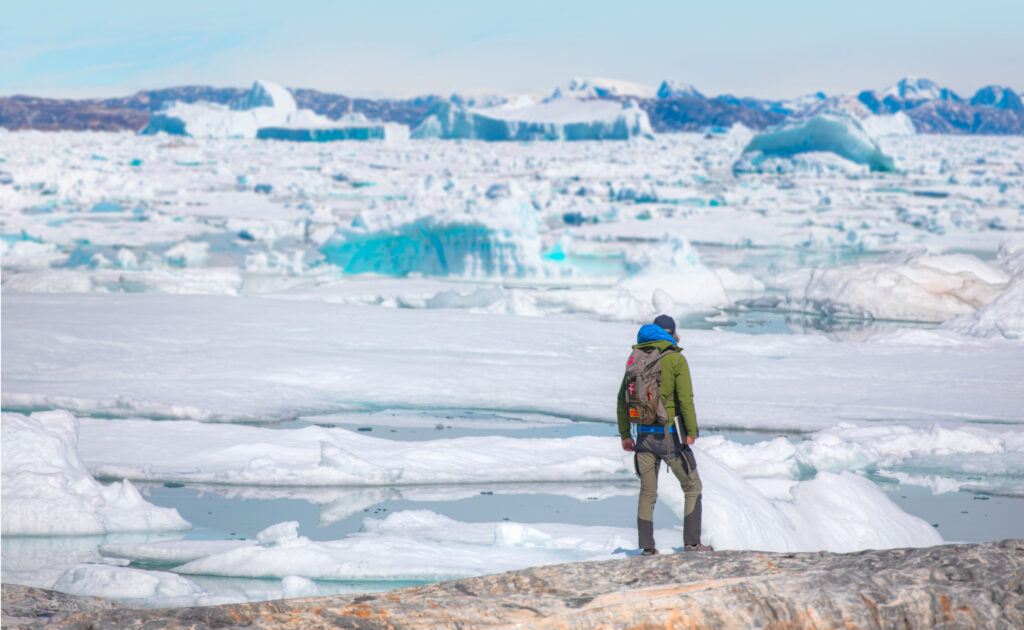
The optimal time to visit Greenland is between June and September, the height of the summer months.
New icebreaker cruises on Le Commandant Charcot now allow you to explore Greenland in the early spring. Expeditions from Iceland to Greenland take place in April and May. I have joined one myself, and they are out of this world.
If you would like to explore the far north region of Thule, Northeast Greenland National Park or West Greenland, these cruises take place later in the season in August and September.
Northwest Passage and the Canadian Arctic
The best time to explore the Northwest Passage and the Canadian Arctic is between late July and September. Due to the heavy sea ice throughout the passage at other times of the year, expedition cruises are only possible during this narrow window each season. Choose a trip in late August or September for the best opportunities to see the Northern Lights.
North Pole
Due to the heavy sea ice, expeditions to the North Pole are only possible from late July to Early September when the sea ice extent is at its minimum.
What are the best months for seeing polar bears and wildlife?
The best time to see polar bears on an expedition cruise is between May and September. Early in the season, polar bears are sighted on the edge of the fjord ice. During the summer, they can be seen on land hunting for prey and ice floes to the north of Spitsbergen.
The peak season for birds is June and July in Svalbard as thousands of migratory birds return to the bird cliffs in the Arctic.
By September, temperatures drop. Wildlife has started to migrate south to warmer overwintering grounds, although it is still a good month for seeing polar bears and walruses.
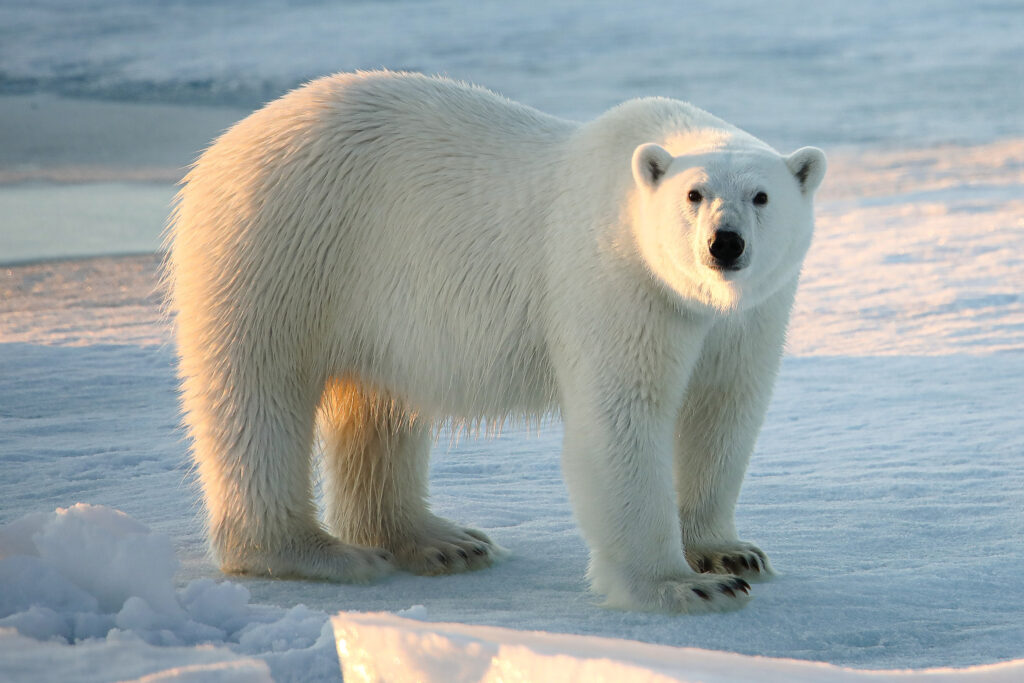
When can I see the Northern Lights and the Midnight Sun?
The midnight sun is visible above the Arctic Circle on the summer solstice on 21st June each year. The further north you travel, the longer the midnight sun is visible. For example, the midnight sun is visible on the North Pole for 6 months of the year. In Longyearbyen in Svalbard, the midnight sun is visible from 19th April to 23rd August.
The Aurora is visible only during hours of darkness, so don’t expect to see it when the midnight sun is visible. The Best time to see the northern lights is on an expedition to East Greenland in September. It’s a chance to encounter this spectacular phenomenon in an area of outstanding natural beauty with no light pollution.
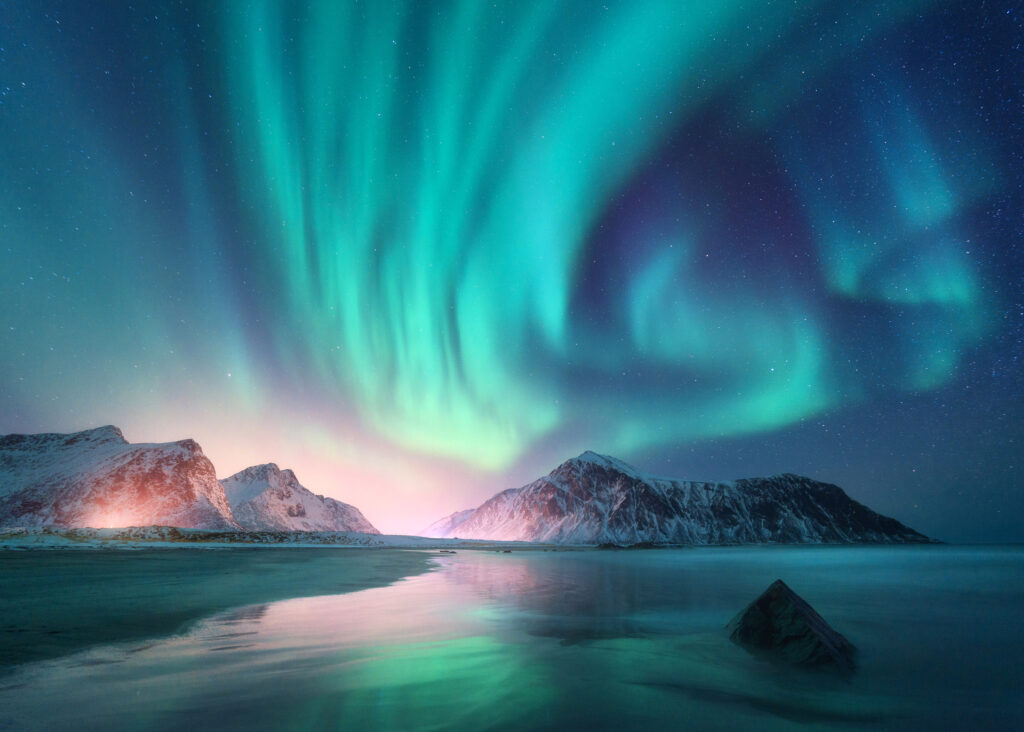
When is the best time to go on an Arctic cruise?
The Arctic cruise season runs from May until September, offering unique scenery and wildlife each month.
Top Tip: May or June is one of my favourite months to take a polar cruise in the Norwegian archipelago of Svalbard. While temperatures are cooler, seeing the raw Arctic as it transitions between spring and summer is a chance. The landscapes are covered in snow, and it is the most beautiful time to visit. Wildlife has started to return, and I have had some of my favourite polar bear viewings in May and June in Svalbard.
If you prefer hiking, I highly recommend July and August. The landscapes are free from snow, making longer hiking routes possible.
Cruises to Greenland and the Northwest Passage occur during a narrow season due to the sea ice surrounding the coast between late July and early September.
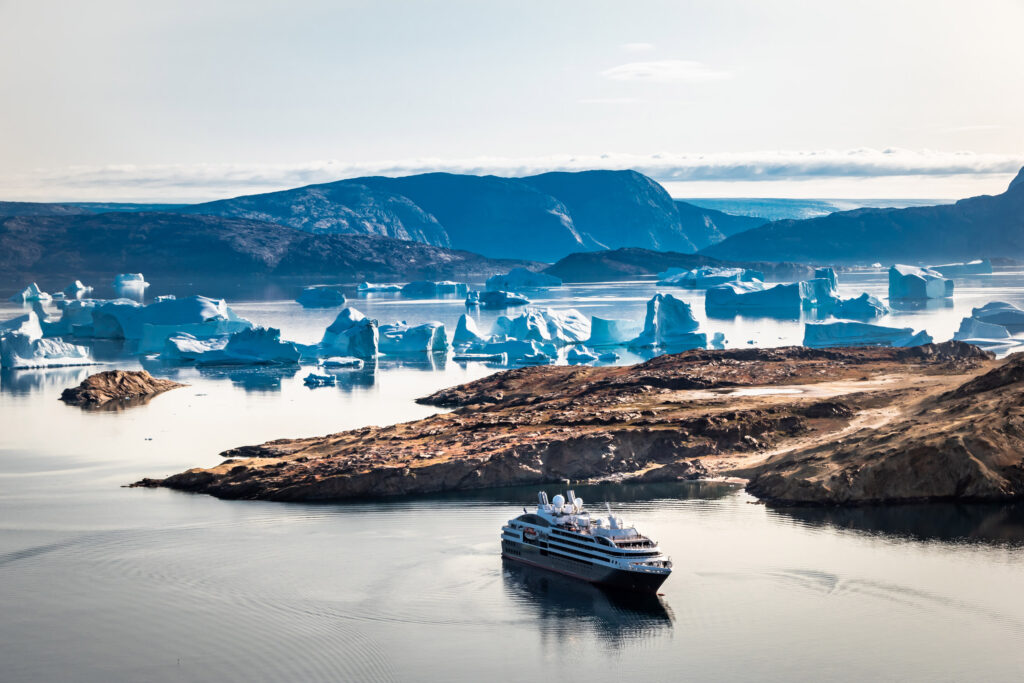
Summary
- The best time to visit the Arctic is during the summer months.
- Due to the extreme temperatures at other times of the year, it is only possible to cruise in the Arctic between May and September.
- The best months for wildlife viewing are between May and September.
- Visiting the Arctic at other times of year for winter activities and viewing the northern lights is possible.
At Polar Escapes, we offer the largest selection of Arctic cruises and tours.
If you need some friendly advice to help you plan your Arctic trip, please don’t hesitate to contact us.
Happy exploring.
Most emails are boring.
Ours are cool.


